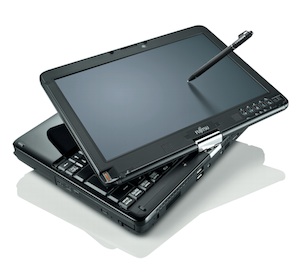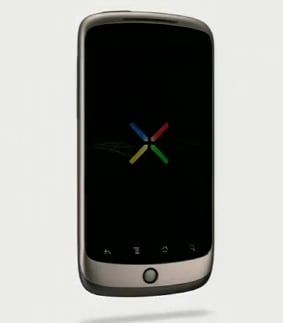This article is more than 1 year old
Android - the winning formula for tablets and netbooks?
It's the only game in town, says the maker of the other iPad
Iconic device, or huge money pit?
The Fujitsu device, however, was being specced out at a time when, in Althaus' words, "we decided to step out of the consumer market". So although one day something of this kind of configuration is likely to ship, it almost certainly won't be Fujitsu that ships it. And even for a company with a much greater footprint in the consumer market, making it a winner would be a serious challenge.
If you're going to get a new form factor to take off, you need to get very high volumes into customers' hands, which means deals with major networks, hardware subsidies and - as it's a content consumption device - content revenue splits with the networks that are sufficient to incentivise them.
You'll also need to make a substantial upfront investment with the screen manufacturer(s) in order to get them to support the uncommon form-factor. Currently, display manufacturers prefer to produce sizes of 10in and above, which allows more economical use of silicon wafers - so it's no coincidence that Netbook screen sizes have standardised at around 10in, and it may not be a coincidence that the iPad screen is also that size.

Fujitsu's tablet take - the T4310
And even if you're confident you can meet all of the upfront manufacturing costs and clinch deals that will produce volume sales, you also face the question of how you're going to be able to sell the content to the customers. Consumption devices need effective content marketplaces.
With the iTunes Store, Apple has certainly demonstrated that it's possible to get a credible content and application marketplace off the ground, but the failed efforts from various networks and handset manufacturers suggest that they've demonstrated an inability to do so. This month at MWC, they were at it again. And Google's efforts so far don't look impressive, especially for a company that, ahem, 'knows about advertising'.
Google and Android certainly could be a serious challenger to Apple in the mobile device space, but Google's little Nexus One adventure does not at the moment look like a serious bid for volume, and Google's awesomely useless Android Market has a long way to go before you could call it an App Store competitor.
Google doesn't have the balls to do it, and the handset companies don't have the brains? Discuss. That could leave the field wide open for Apple to do the consumer content consumption/delivery device, the one for the people who don't read any more, as and when it chooses. And as it's currently advertising for a manager to lead a team focused on bring-up of iPhone OS on new platforms, it may be choosing already.
Android, the success Google can't kill?

A success despite Google?
But Android will still succeed, in Althaus' view, because it provides a road out of the cul de sac tablet vendors have found themselves in. Fujitsu has offered Windows CE-based tablets in the past (and its FLEPia e-book reader, currently sold in Japan, runs CE), but one of the few attractive features of Microsoft's device OS is its small footprint. "Users aren't going to use Windows CE," he says, they're going to want to run Windows.
Which means you need bigger batteries in order to get reasonable endurance, and cooling fans and a bigger case to deal with heat dissipation. The latter is more important for tablets than is usually the case with notebooks/netbooks, because the notebooks tend to be used on desks, while tablets are carried, often on your arm, where 44 degrees rapidly becomes an issue.
Weight distribution is also important if you're carrying it on your arm, because you don't want it to keep tipping over. And did you know that Americans are happy to carry tablet computers this way, while Europeans generally aren't? So says Meinolf Althaus, anyway.
